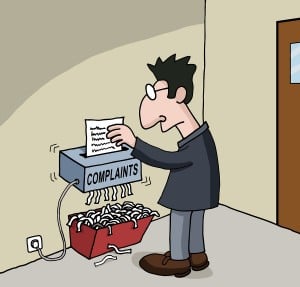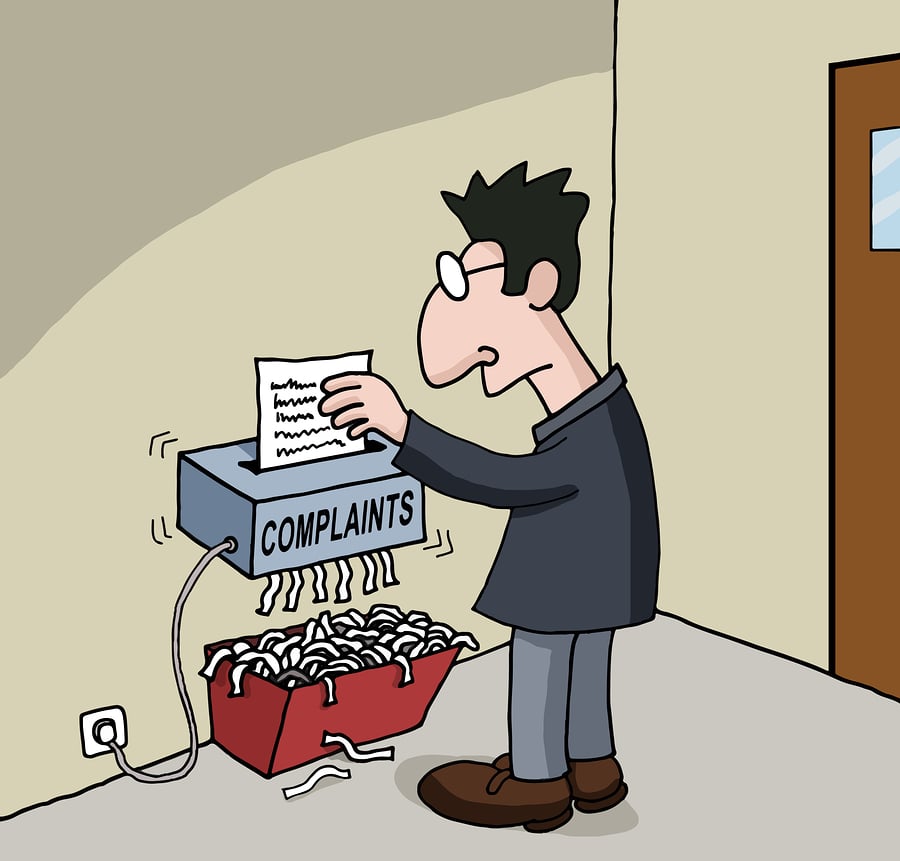 Positively managing tenant related complaints contributes to your success as a property manager or landlord and helps you retain your best renters. With each interaction that is handled appropriately, you build the foundation for a great relationship with your current tenants, which translate to less turnover, less vacancies, and more income.
Positively managing tenant related complaints contributes to your success as a property manager or landlord and helps you retain your best renters. With each interaction that is handled appropriately, you build the foundation for a great relationship with your current tenants, which translate to less turnover, less vacancies, and more income.
To help you prepare you for future tenant interactions, here is a list of the most common complaints tenants make about their property manager or landlord and what you can do to prevent them.
- Poor Communication
- Complaint: Tenants feel like management does not communicate their expectations and rules about the property.
- Manage it: Read through the lease with your tenant and address all the terms and conditions. Send seasonal reminders of expectations regarding yard work and routine weather maintenance. Perform quarterly or semi-annual inspections to check in with your tenant and talk about what they are doing right and wrong. Give them an opportunity to ask questions or address concerns and explain anything they need to improve.
- Maintenance/Work Orders
- Complaint: Lack of response or timely fix of maintenance issues
- Manage it: Give your tenants appropriate means of contacting you and ways to submit work orders. Your property management software should have a tenant portal where tenants can submit work orders online and property managers have the means of managing maintenance requests and coordinating vendors online. Explain in your lease how and who to contact about maintenance requests and work orders.
- Learn more: Why Every Renter Needs a Tenant Portal
- Lack of Privacy
- Complaint: Tenants can feel like they do not have any privacy because their landlord has access to their home and enters it too often.
- Manage it: Property managers and landlords are required to provide tenants with at least 24 hr notice before entering a rental for maintenance or routine site inspections. Make sure your tenants actually receive your notice of your intent to enter the premises, a great way to do this is with a read receipt via email.
- Poor Customer Service
- Complaint: Tenants receive a rude response (or lack of response) about questions or issues regarding their property.
- Manage it: Remember your tenants are your customer, and excellent service is the best way to retain your current customers. Return calls quickly. Address maintenance issues promptly. Talk nicely to them, not down to them. Make them feel good about choosing to do business with you.
- Check out these tips for Great Customer Service to Improve Tenant Relations.
- Deposits Reimbursement
- Complaint: Tenants feel like landlords and property managers keep too much of their security deposit.
- Manage it: Provide your tenant with a move-out checklist, including the criteria in your move-out inspection report and the condition you expect to find your property after they vacate. After they move out, return their deposit with an explanation of charges to their forwarding address. If you are deducting charges, be clear about them and break down the work. For example, instead of saying $100 for patching and painting the walls, break it down further, $10 for each 5 spots in the living room, $20 for the spot over the fireplace and $30 for paint and supplies. The more specific you are, the less likely they will be able to dispute the charges. And always use pictures to illustrate the damage.
- Check out these awesome tips for How to Help your Tenants Get Their Security Deposit Back
- Anxiety and cost of the rental application process
- Complaint: Tenants don’t want to pay application fees and feel anxious during whole rental process while they are waiting for approval.
- Manage it: Clearly explain the purpose of the fees and deposits in a way that benefits the tenant. For example, an application fee covers the cost of a background check so they know you are only renting to quality tenants and providing them with a safe home. To ease anxiety, provide answers to applicants within 24 hrs. Most tenant screening services will generate credit and background checks instantly.
Having the means of dealing with tenant complaints will ensure proper management of your properties. Handling tenant complaints appropriately and preventing them from happening altogether will create a positive landlord-tenant relationship and build your reputation as a great property manager in the community.






